Review for Fate Stay Night: Unlimited Blade Works - Part 1
Introduction
Until a couple of years ago, I didn’t have a lot of time for the Fate/Stay Night universe. It’s a Type Moon videogame, essentially an interactive adult novel which has three distinct routes through it. Type Moon have originated some good stuff over the years. I’ve enjoyed Lunar Legend Tsukihime each time I watched it, and the Garden of Sinners boxset was a particular treat. But their big title, Fate/Stay Night got an initial adaptation from Studio Deen that was decidedly average, and with a rather unsatisfying conclusion. MVM released that over 6 volumes back in 2010. There then came a Fate/Stay Night Unlimited Blade Works movie, which adapted the second route through the visual novel, but tried to cram it into an hour and forty minutes. You wouldn’t be surprised to hear that it was quite the mess.
It was in 2014, when MVM released Fate/Zero that my opinion of the franchise changed. By this time, the franchise had fallen to Studio ufotable, the people behind the Garden of Sinners movies, and they were prepared to throw some serious time and money at the franchise. Fate/Zero was a prequel to Fate/Stay Night, chronicling the Holy Grail War that took place some ten years prior to the visual novel, and informed its back story. Fate/Zero boasted some serious animation, and its story was deeper, more compelling, with some fantastic characters. Fate/Zero quickly became one of my favourite anime of the year, and one that I was quick to upgrade to Blu-ray. It also got the mega-expensive treatment from Aniplex in the US. “If only Fate/Stay Night had been like this...” I thought.
Ask and ye shall receive. At the end of 2014, Fate/Stay Night: Unlimited Bladeworks the TV series began broadcast, it too animated by Studio ufotable. The second route through the game gets a full, 2-cour adaptation, 26 episodes worth instead of a short movie. I managed to miss it on streaming, so this is my first viewing of the series. It too has had the mega-expensive treatment from Aniplex USA, with $100 DVD releases, and Blu-rays at twice the price, four times if you got their Japanese import version. As they did with Fate/Zero, MVM have partnered with Australia’s Hanabee to bring Region 2/4 and B anime fans the show at a more reasonable price. The Blu-ray release will be a Collector’s Edition, with 13 episodes across 4 discs, rigid artbox, artbook, poster and stickers. Just as with Fate/Zero, we’re losing a little something compared to the Aniplex release to justify the cheaper RRP, in this case a soundtrack CD (The Japanese import had even more!). This standard DVD release comes on 3 discs, containing all 13 episodes of Part 1. Note that some of the episodes are double length, hence the higher than usual disc count. I’ve listed the runtime next to the episode title where it exceeds the usual 22:52.
Ten years previously, a secret war over the possession of the Holy Grail raged between mages and the powerful servants they had summoned. It was a conflict that laid waste to a significant area of Fuyuki City, and the sole survivor, Shirou was rescued by a mage and adopted as a son. Shirou Emiya has an instinctive rapport with machines, and can sense how things are supposed to fit together, but he has no knowledge of the Grail Wars, or the role that his late adoptive father played in them. At the same time, Rin Tohsaka, the last survivor of the Tohsaka family, has inherited her late father’s quest to win the Grail, and is eager to summon the strongest Servant of them all, Saber to help her win the prize. New Fuyuki will be the battleground for a new Holy Grail War, as seven mages will draw forth their servants and clash. But Rin summons an unexpected ally, Archer, while it’s Shirou who surprisingly reveals hidden magical talents when he summons Saber, and gets pulled into a battle that he’s completely unprepared for. Yet it’s on the shoulders of these two young mages that the fate of the city rests.
Disc 1
0. Prologue (48:42)
1. Winter Days, Fateful Night (45:53)
2. The Curtain Goes Up (25:26)
3. The First Battle
Disc 2
4. Finding the Will to Fight
5. Dancing After School
6. Mirage
7. The Reward for the Fight to the Death
Disc 3
8. Winter Days, Where the Heart Is
9. The Distance Between Them
10. The Fifth Contractor (24:19)
11. A Visitor Approaches Lightly
12. The Final Decision (46:13)
Picture
You get a 1.78:1 anamorphic transfer for Fate/Stay Night: Unlimited Blade Works, and it’s really quite a nice one, presented in native PAL with the usual 4% speedup. The image is clear and sharp throughout, with strong, consistent colours. Just as Fate/Zero did, this show gets a rather splendid and comparable animation from Studio ufotable. The characters are detailed and the animation is fluid. The backgrounds and world design are very appealing, and the action sequences speak of a decent budget and a whole lot of work. It’s a great DVD transfer for an anime, yet seeing the level of detail that is apparent at standard definition suggests that the Blu-ray will be very much the preferred option.
Sound
You have the choice between DD 2.0 English and Japanese, with optional translated subtitles and a signs only track. I checked the English dub to ensure that it existed (it does), but otherwise stuck to the original Japanese audio, which given the continuity of cast between all iterations of the Fate/Stay Night story is certainly preferable. The dialogue is clear throughout, with the subtitles accurately timed and free of typos. The show certainly gives good sound design when it comes to the action sequences, making the most of the stereo format, and the show’s music reaches theatrical levels of complexity and depth. There’s a haunting moment in episode 12 where it reprises the opening theme to the first Fate/Stay Night series, and I was surprised at how effective it was.
Extras
The discs present their content with static menus.
The only extras are on disc 3, and amount to 9:33 of promo trailers, 10 of them, the textless credits (one opening, two closings), and trailers for Beyond the Boundary, Black Bullet, and No Game, No Life.
Of course we miss out on the extra goodies that were in the mega-expensive Aniplex US set, but you get what you pay for.
Conclusion
This is the best adaptation of the Fate/Stay Night story I have yet seen, although given the previous, lacklustre Studio Deen effort from 2006, and the messy and abbreviated Unlimited Blade Works movie, that isn’t saying much. There are three paths through the Fate/Stay Night visual novel, and the original show adapted the first Fate route. The second route was the Unlimited Blade Works route, first hacked at by the film, and then given the treatment it truly deserves by this ufotable series. The appreciation that fans have for this franchise was re-emphasised last week, when it was confirmed that ufotable will be adapting the third and final route through the game, the Heaven’s Feel route into a trilogy of feature films. There’s also going to be a Fate/Extra series as well.
I have to admit that I’m not exactly a fan, although I do enjoy Fate/Stay Night for what it is. What made me sit up and take notice was the Fate/Zero prequel series that ufotable created prior to this series. That show had some serious production values to its animation, but more importantly it was based on a light novel by Gen Urobuchi, the writer of Psycho Pass and Puella Magi Madoka Magica. That’s some serious writing cred there, and even while the show looked better than most movies, it had the narrative, and characterisation that made it absolutely compulsive viewing. As a prequel series, it led into the Fate/Stay Night story, but in terms of quality, it transcended it completely.
Fate/Stay Night isn’t written by Gen Urobuchi. It certainly has the production values of Fate/Zero, indeed it builds on that earlier work by actually improving on the visuals. Fate/Stay Night Unlimited Blade Works the series makes the Unlimited Blade Works movie look like a flickbook animation! Best of all, while Blu-ray is the natural environment for this series, these are still some of the nicest DVDs I’ve seen in terms of the visual transfer. But it’s still based on the visual novel, and you can’t escape the issues that hamper, in terms of structure and in terms of characterisation.
While there are three routes through the game with different narrative destinations, they all share the same origin point. That means that if you’ve seen the Studio Deen animation, and the Unlimited Blade Works movie, then this will be the third time that you are experiencing the start of the story. You can almost drift through the beginning on autopilot, the battle between Archer and Lancer, Shirou getting caught in the middle, Rin saving his life, him accidentally summoning Saber, the confrontation with Illya and Berserker, the shenanigans at school with Shinji. This may be the prettiest that the story has ever looked, the characterisations and, the way the narrative is structured might be the most impressive, but this is still old data. It’s around episode 5 or 6 that the story begins to diverge from what has come before (I don’t clearly recall the movie story that well, it was so poorly told), and then the show really becomes compulsive viewing.
The second thing is something I only realised when watching this iteration of the story. I don’t particularly care for the characterisations in this show. Given that Shirou is a protagonist, it is something of a problem when I consider that this young adult’s dream to be a hero is juvenile and weak. The rest of the characters are similarly single-note, Sakura the doting childhood friend, Shinji the sneering villain, Taiga the mooching teacher, and so on and so forth. The only really interesting characters are Archer and Rin, and given that they are also protagonists in the show, it helps carry it where the other characters do not. The show also sparks to life when Shirou and Archer are in scenes together, for wholly spoilery reasons. The Unlimited Blade Works route certainly delivers in terms of story complexity in comparison to the Fate route, and ufotable do their best to layer complexity and nuance to wafer thin characterisations, but it’s hard to watch this show and not think of the utterly superior Fate/Zero. It doesn’t help that ufotable have created this version of the show as a direct sequel to Fate/Zero, although I have to admit that it is cool when it refers to the earlier series.
So weak characterisations, repetition of story, and it stands poorly in comparison to the prequel series. You’d think that would be cause not to recommend the show. Only Fate/Stay Night Unlimited Blade Works is pretty good even after all that. The Unlimited Blade Works route certainly offers character drama and the narrative that the Fate route (as adapted by Deen) lacked. Tying it in the Fate/Zero prequel even adds depth to the story that it wouldn’t have had otherwise. And on top of that, ufotable’s production values make it a show that is very much worth watching for the aesthetic value alone, while they manage to present the narrative, and shade the characters in a way that makes it more interesting than not. They manage to make the familiar start of the story interesting again by telling it twice over during the opening two episodes. Episode 0 tells it from Rin’s point of view, while episode 1 gives the familiar Shirou perspective, but the two perspectives create a kind of synergy that wouldn’t have been there had it been just one version of the opening. That synergy is enough to maintain the interest over the first half of the collection where we tread familiar ground.
There is enough in those opening episodes that is different, little touches, little moments that keep you interested. It’s when the story begins to diverge that the Unlimited Blade Works series comes into its own, and the writing begins to develop the characters in more complex ways. These can never be the complicated and fascinating characters of the Fate/Zero story, but in this adaptation of Fate/Stay Night, their interactions are natural, and involved enough to feel more realistic. This isn’t true for all of the characters, but anytime that Archer, Rin, Shirou, Saber, or Caster are interacting, the show steps up a level.
Unlimited Blade Works gets better and better through its run, until it reaches a genuinely compulsive cliff-hanger that you simply have to see resolved. One appealing aspect of the show is that the episodes are long enough to tell the story that they are telling, and aren’t truncated or cut down the middle for the sake of broadcast timings. By itself, Fate/Stay Night Unlimited Bladeworks is a watchable and very appealing show, made all the better by fantastic production values. It is the best iteration of Fate/Stay Night to date. It is unwise to compare it to Fate/Zero though, although the irony is that as a direct sequel, such comparisons are unavoidable.
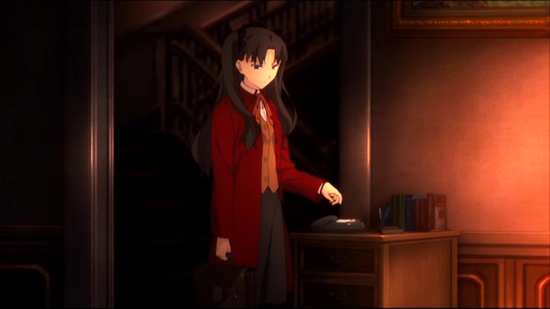
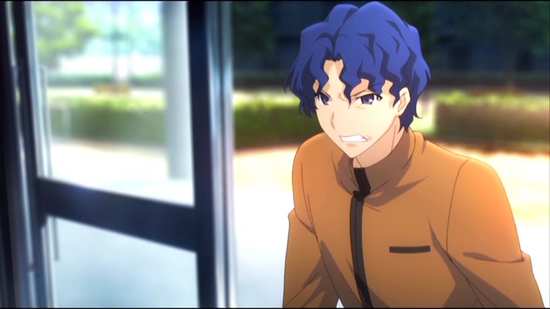
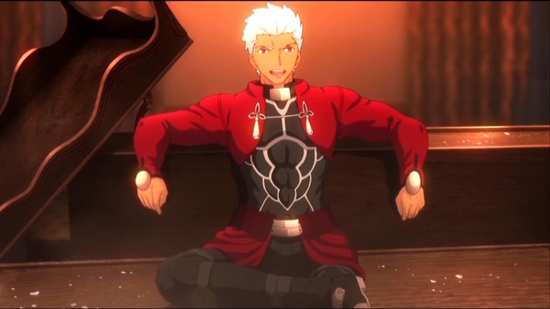
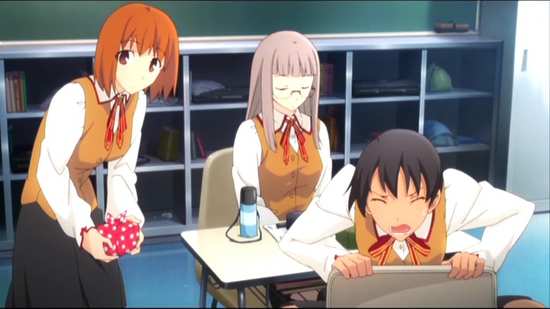
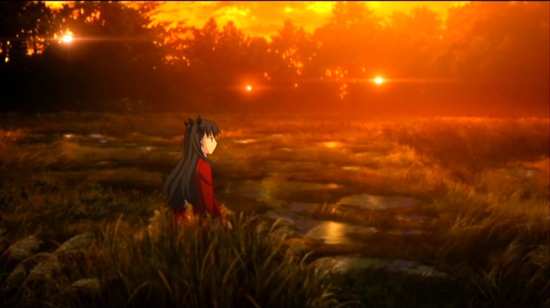
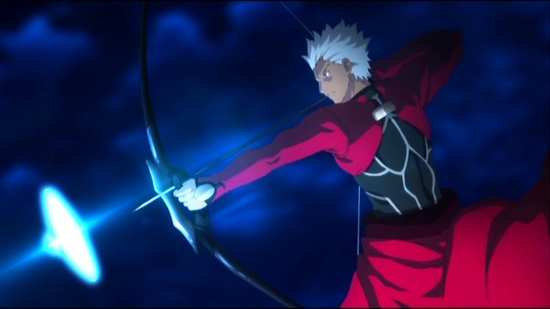
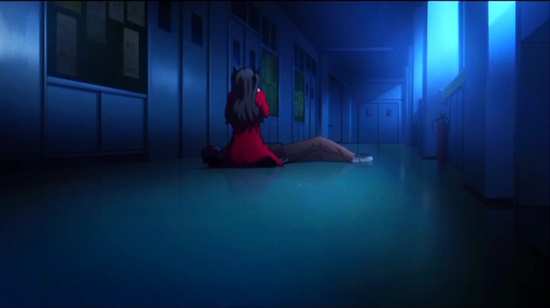
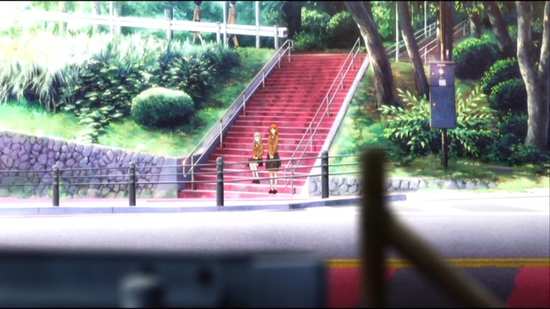
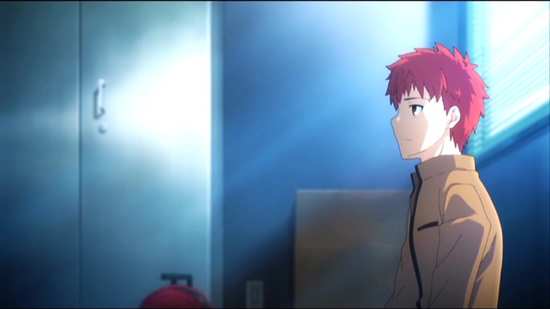
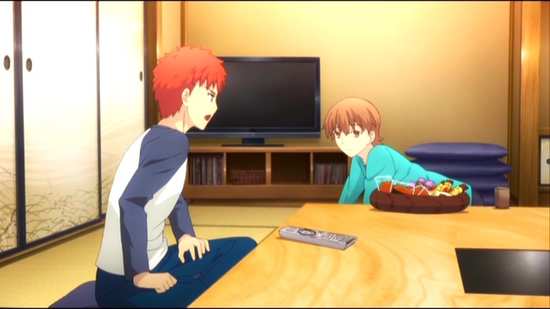
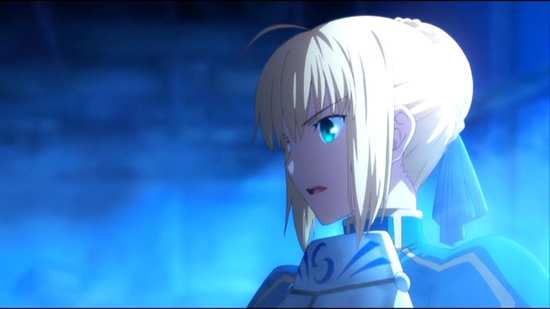
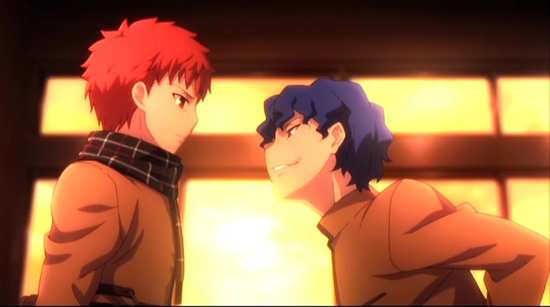
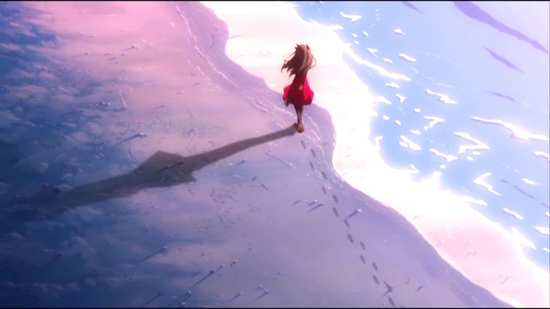
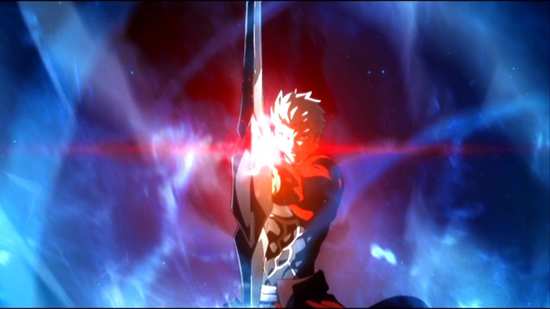
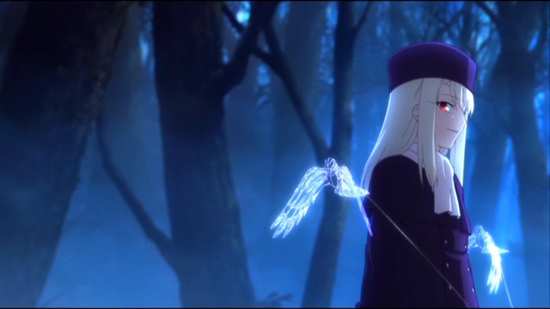
Your Opinions and Comments
Be the first to post a comment!